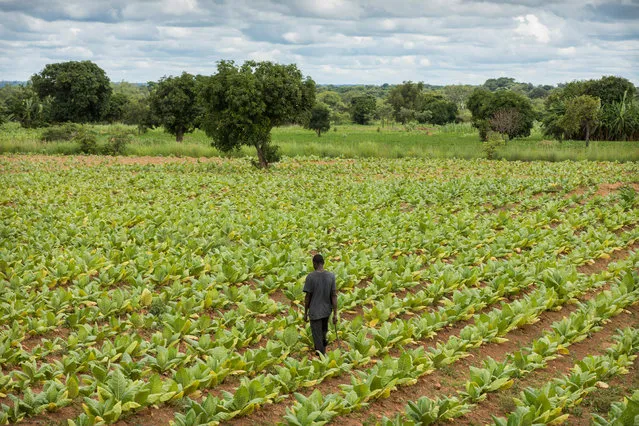
Life as tenant farmers in Kasungu, northern Malawi, can be a struggle for families trapped in poverty, who feel forced to rely on their children’s help, impacting schooling. Here: A tobacco field at a farm in Kasungu region, Malawi. Tobacco is the country’s most important export crop, with tobacco leaf from Malawi filling cigarettes found all over the world. (Photo by David Levene/The Guardian)
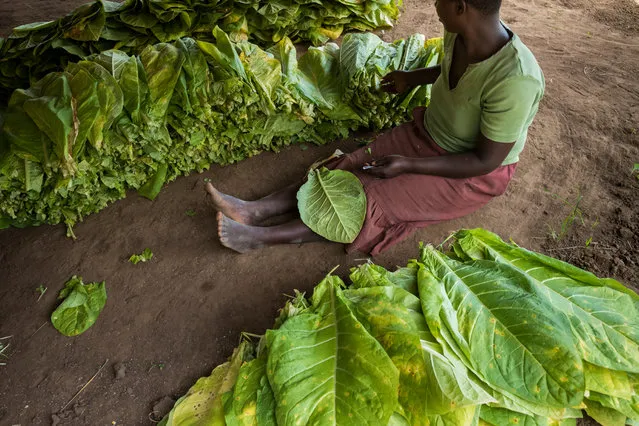
Sewing tobacco leaves in preparation for drying. (Photo by David Levene/The Guardian)
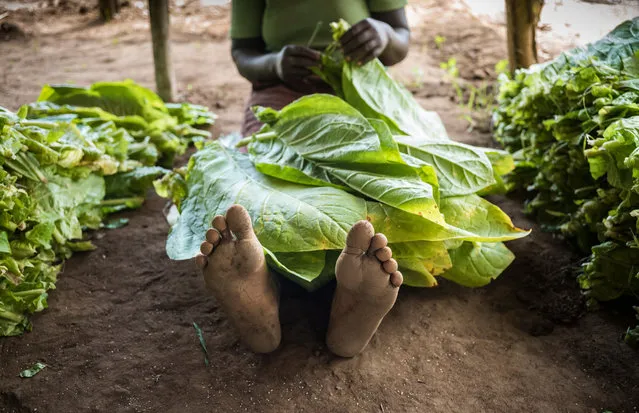
The leaves are sorted. (Photo by David Levene/The Guardian)
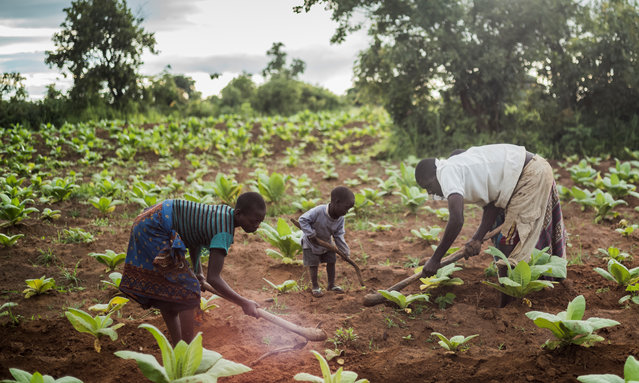
Tiyamike Phiri, an orphaned child labourer, left, at work on a tobacco plot belonging to her brother’s family. The 14-year-old says she left school because she had no materials with which to study so she opted to work in the fields. (Photo by David Levene/The Guardian)
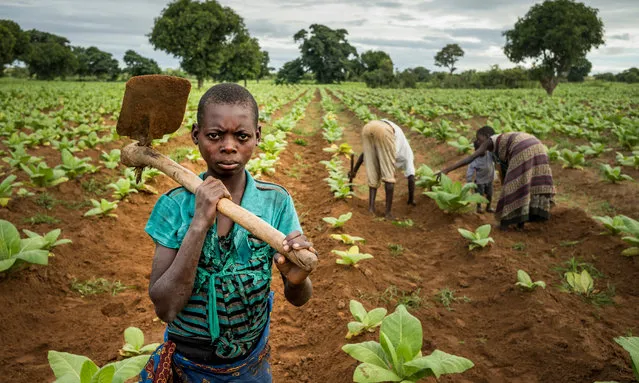
Tiyamike Phiri hopes to become a nurse because she wants to travel the country and help others. (Photo by David Levene/The Guardian)
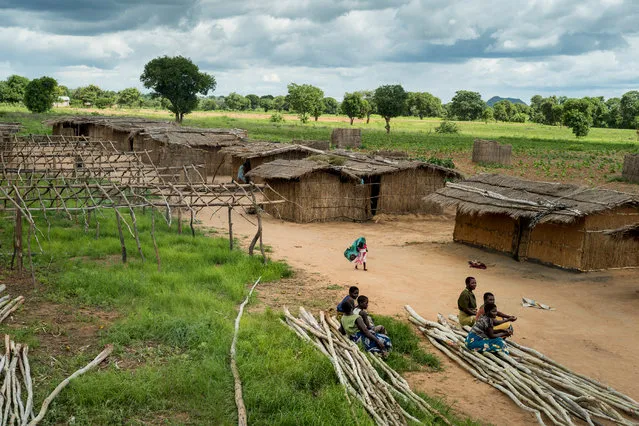
The tobacco farm and village. Workers live in straw huts for 10 months while they work on the farm. The tobacco firms say they are doing all they can to stop exploitative child labour in their supply chains. (Photo by David Levene/The Guardian)
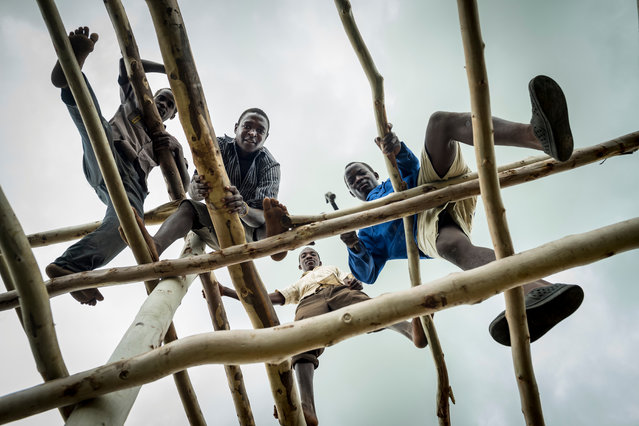
Residents of the village construct a barn to dry tobacco. (Photo by David Levene/The Guardian)
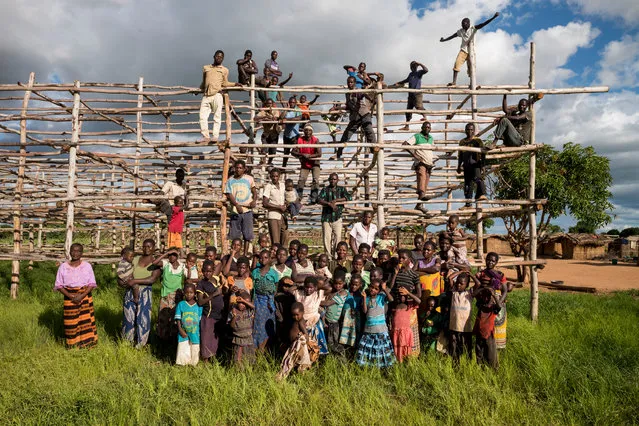
Tenant farmers and their families. (Photo by David Levene/The Guardian)
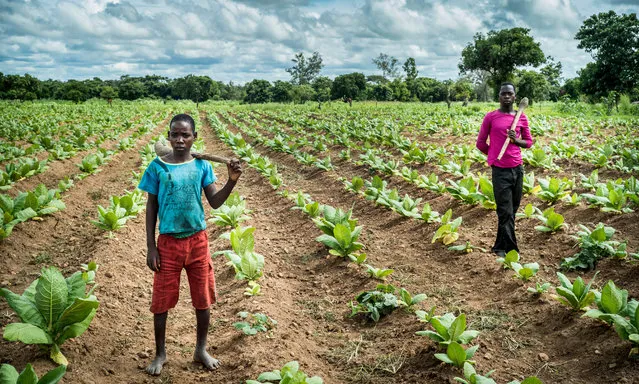
Dionetsetse Dickson (left), 14, and brother John Kennedy Dickson, 16, who have been working on the farm full-time for the past year. (Photo by David Levene/The Guardian)
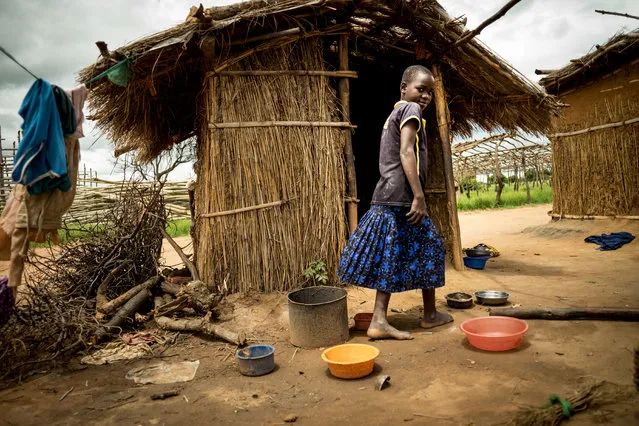
A child outside a home in the village. (Photo by David Levene/The Guardian)
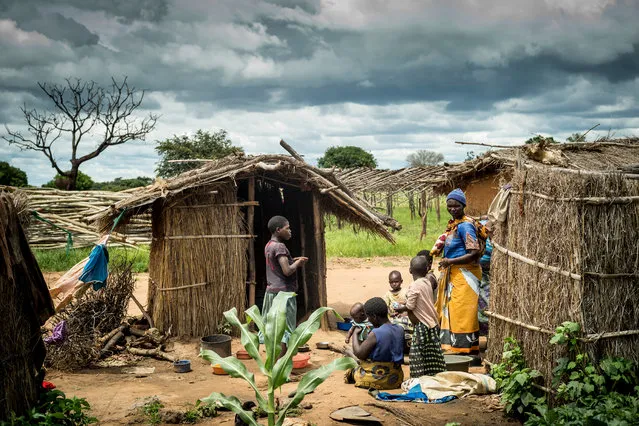
The village. (Photo by David Levene/The Guardian)
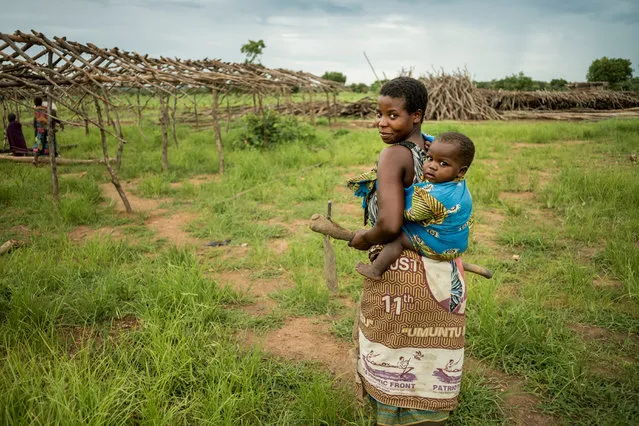
The tobacco farm. (Photo by David Levene/The Guardian)
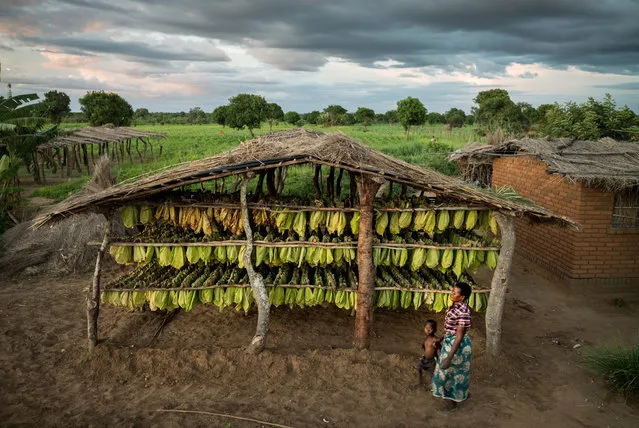
Tobacco drying. (Photo by David Levene/The Guardian)
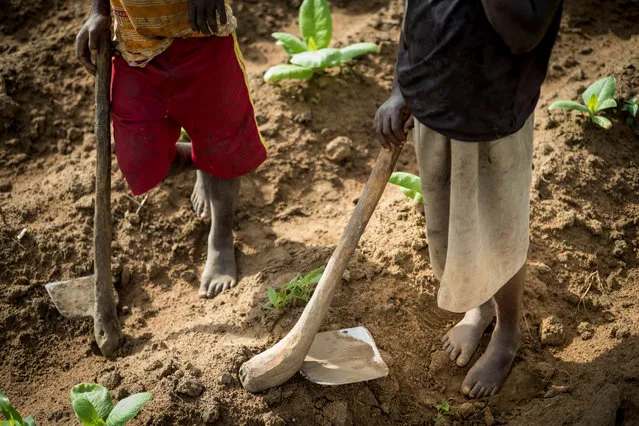
Thokozani Chakwanila (left), 11, and Misozi Chakwanila, eight, help in the fields. Toiling to help their families can impact their schooling. (Photo by David Levene/The Guardian)
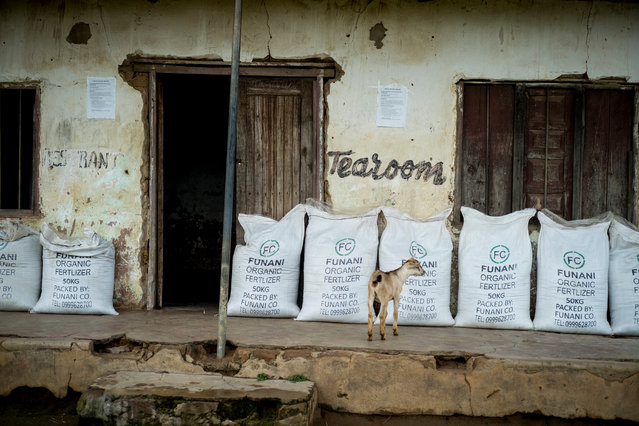
A former tea room with bags of fertiliser on sale outside. (Photo by David Levene/The Guardian)
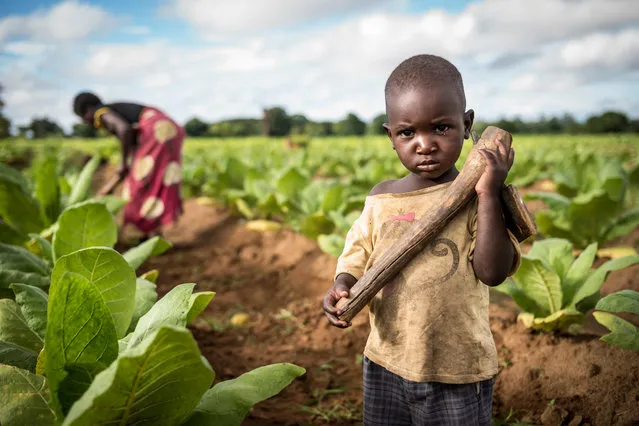
Jackson, two, with his mother Esther Phiri, 16. Jackson has a miniature hoe, fashioned by his father, Lazaro, because he cried every time he saw his parents set off for the fields carrying tools and wanted one for himself. (Photo by David Levene/The Guardian)
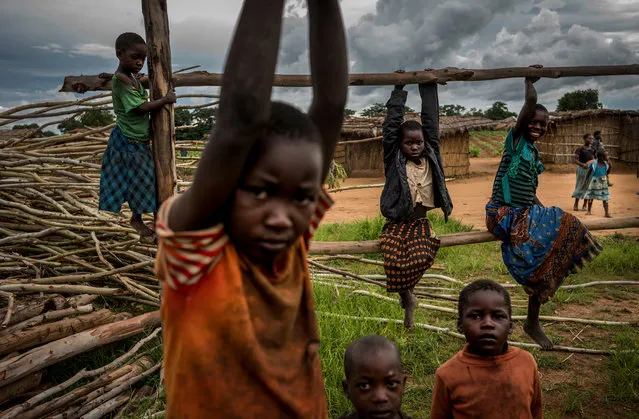
Children play in the village. (Photo by David Levene/The Guardian)
27 Jun 2018 00:05:00,
post received
0 comments
